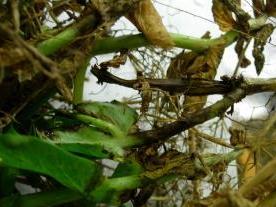WA growers that have received rainfall are advised to sow their field peas
This season has been dry and many places have experienced a cold May. These factors have resulted in a very slow maturation of the blackspot fungal fruiting bodies on previous season’s field pea stubbles at many locations in WA this year.
As rainfall has fallen in most WA locations since last Friday it is recommended that growers sow their field peas irrespective of their blackspot risk.
Field pea sown now at Boyup Brook, Gairdner, Jacup, Katanning, Mount Barker and Narrogin will have a low blackspot risk as fruiting bodies have matured and more than 50% of the spores have already been released.
For Bencubbin, Cunderdin, Dalwallinu, Dowerin, Kondinin, Lake King, Merredin, Mingenew, Moora, Mullewa, Newdegate, Salmon Gums and Tammin the agronomic sowing window closes from mid-June onwards and there is a yield loss penalty for late sowing of field pea. At these locations you should try and sow field pea as soon as you can get into these paddocks. The blackspot risk is high for some of these locations.
For more details on the latest Blackspot Manager forecast refer to the department's Field pea blackspot sowing guide for Western Australia - 10 June 2019.
Growers and consultants can regularly check their locations blackspot risk as updated forecasts are available weekly at the department’s Blackspot in field peas disease forecast 2019 page.
For more information on blackspot refer to the department’s Diagnosing blackspot in field peas page.
To subscribe to the free blackspot SMS service, text 'blackspot', your name and nearest weather station to 0475 959 932 or email Blackspot.Manager@dpird.wa.gov.au to subscribe to the direct email service.
For more information on blackspot in field peas or the forecasts contact Jean Galloway, Research Officer, Northam on +61 (0)8 9690 2172.

